A coalition of four leading environmental groups of the Pacific coast conservation community,: David Suzuki Foundation, Georgia Strait Alliance, Living Oceans Society, and T. Buck Suzuki Fondation. CARR aims to protect against destructive fish farming practices - specifically, open-net aquaculture - and to encourage the fish farming industry to adopt new technology, change to environment-friendly practices and to respect local communities.
Descriptions of organizations come largely from their own websites. Any group's views and actions in their entirety do not necessarily represent the opinions of Blue Planet Links Foundation. BPL's mission is to promote sustainably healthy ocean and fresh water, and to the best of our knowledge, the listed organizations share this objective.
© 2024 Blue Planet Links
ActionLinks
-
Aquaculture & fishing
Offers news and opinion from Canadian and international media reports on Oceans (fisheries, ocean health and aquaculture) and Fresh Water (hydropower, water and hydrocarbons, privatization, scarcity).
A marine conservation organization and an environmental voice for coastal communities in BC. It focuses on protecting marine life and preventing pollution from entering our waterways by using science, advocacy, collaboration, outreach, education and stewardship to find solutions to marine threats.
Long-established non-profit environmental activist organization, with a presence in 40 countries across Europe, the Americas, Asia and the Pacific. Actively campaigning against threats to the ocean, such as oil drilling in the Arctic, overfishing, pirate fishing, and whaling, and for national governments to recognize these threats and legislate to mitigate them.
Canada's largest organization devoted to marine conservation, tackling such issues as oil tankers on the coast, marine biodiversity, sustainable fisheries, ocean planning through ecosystem-based management, ocean acidification. The Living Reef was a project to conduct a census of British Columbia's reef sealife by enlisting the help of divers and snorklers. See Ocean Planning for issues on the radar and Maps for Marine Protected Areas.
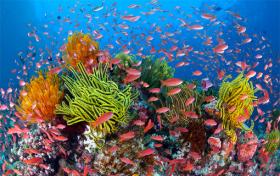
Mangrove forests, which grow in tropical intertidal areas and estuary mouths, constitute a critical habitat for a diverse marine ecology, but are rapidly disappearing and degrading as a result of development, charcoal and timber industries, and a burgeoning, unregulated shrimp/prawn farming industry. MAP's 400 NGOs and 250 scientists from 60 nations are engaged in the restoration and protection of mangrove forests, in education, and in working towards a sustainable aquaculture through regulation and eco-friendly practices.
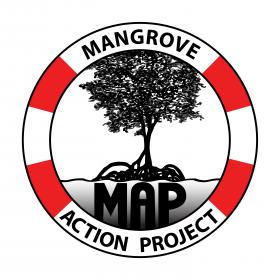
This Vancouver Aquarium program provides a list of environmentally responsible seafoods and a handy restaurant-locator featuring ocean-friendly choices.
Non-profit British Columbia research and public education group promoting an ecosystem approach to fisheries and watershed management. Fisheries Management and Canada's Wild Salmon Policy features the Raincoast publication Ghost Runs, a paper on the effects of various policies and industries on salmon runs.
Biologist Alexandra Morton studied the orca and dolphins off British Columbia's coast, and gradually became alarmed at the decline in local whale populations, eventually becoming a whistle-blower to alert the public and governments to the threats to indigenous whale and fish species. Argues fervently against unregulated, open netcage aquaculture. See also her blog.
Non-profit independent social marketing organization dedicated to conserving healthy seas and sustainable sealife. The Asia Pacific Program empowers communities in Fiji and Papua New Guinea to conserve ocean resources, and GoodCatch guides chefs and restaurateurs to source sustainable seafood.
Protecting the marine environment for commercial fishing and wild fish, the organization advocates contained fish farms, improved drainage and water treatment systems, and fights industrial water pollution.
Vancouver Sun. Not all fish farms are inherently evil, but be cognizant of which farms are more sustainable than others, ie. shellfish and closed inland systems. With global fisheries ("the last great wild proten we consume") predicted to collapse by 2050, fish farming may be the solution for the future of seafood.
Tides Canada has created the Salmon Aquaculture Innovation Fund to help develop alternative models to traditional open-net aquaculture, with the goal of protecting wild salmon while building a viable, sustainable aquaculture industry.
"Watching out for BC's wild salmon", Watershed Watch spearheads issues such as open-net fish farms, the impact of hydropower projects, unsustainable harvesting, pollution, and many others that may have a detrimental impact on wild salmon.
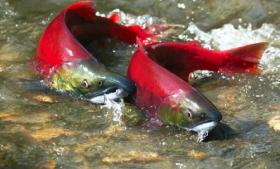
Uruguay-based WRM works to secure the lands and livelihoods of forest peoples and supports their efforts to defend rain forests from such threats as commercial logging and shrimp farming. Shrimp Farms has articles which provide background on the effects of aquaculture on tropical coastal mangrove ecosystems.
-
Water quality & management
CWRA is a national organization of individuals and organizations interested in the management of Canada's water resources. Membership is composed of private and public sector water resource professionals, including managers, administrators, scientists, academics, students and users.
IWA connects water professionals around the globe - integrating the leading edge of professional thought on research and practice, regulators and the regulated, across national boundaries and across the drinking water, wastewater and stormwater disciplines.
Organization for anyone associated with the groundwater industry. Their purpose is to provide guidance to members, government representatives, and the public for sound scientific, economic, and beneficial development, protection, and management of the world's groundwater resources.
RBC provides financial support to North American not-for-profit organizations that protect watersheds and provide or ensure access to clean drinking water.
Foundation working for a sustainable pulp and paper industry by promoting environmentally safe products and production (emphasizing non-chlorine processing, and higher, enforced discharge pollution standards).
Approaching water conservation as a vital business industry we need to protect our planet, this site uses a variety of informative links to suggest water conservation at home, for kids, as a global concept and a business opportunity.
A non-profit organization of water quality professionals dedicated to the preservation and enhancement of the global water environment. Its objectives are to foster innovation, enhance the knowledge of water quality professionals, and generate awareness of water's value.
Along with groups such as the U.S. Center for Disease Control and Prevention, the council is part of an international partnership working to bring home water treatment products to communities not served by municipal supplies or safe wells - treatments accompanied by intensive social marketing to ensure proper and continued use. Sponsored by the Chlorine Chemistry Council, plenty of information on this website is about disinfecting procedures, usually favouring chlorine bleach (sodium chlorite), long considered the basic "water cleaner".
"For one-third of the world, the real environmental crisis is squalor, smells and disease on the doorstep." India-based organization makes an informed plea to policy-makers, educators, community leaders - everyone - to speak up, be informed and mobilize resources to improve drinking water supplies and sanitation in a sustainable way. Particular emphasis on helping women and children in developing nations.
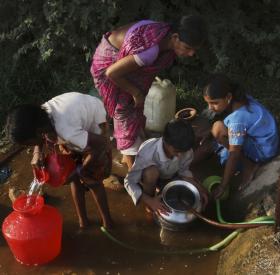
The aim of this Association is to increase the amount of large scale water reclamation, treatment, and recycling in the world, including through desalination.
-
General Environment, water
An organization using design and policy solutions to solve the plastic pollution crisis. Their study indentifying the prevalence of plastic microbeads led to their ban in the United States.
Beaches and marines that meet strict criteria for water quality, environmental management and education are certified with the eco-label "Blue Flag" - coordinated by Environmental Defence. Look for a Blue Flag beach or marina near you, or apply for certification.
Based in Washington, DC, CWF is a national nonprofit research and educational organization, with locally staffed environmental and health protection programs serving communities in nearly 20 states. CWF’s mission is to develop strong grassroots environmental leadership and to bring together diverse constituencies to work cooperatively for changes that improve their lives, focused on health, consumer, environmental and community problems.
DSF works to find definable solutions to the planet's most pressing environmental problems, and to provide useful information, thought-provoking communications, and plans for a truly sustainable society. Founded by renowned scientist/environmentalist (and television personality), David Suzuki. In Oceans, #jointhepod the help Salish Sea orcas, and understand what oceans do for us in the report Not Just a Pretty View.
Umbrella organization for leading American environmental and conservation groups. Organizes or assists with workplace fundraising campaigns: donations or pledges can go to Earth Share (to be distributed among its member groups) or designated to one or more specific environmental organizations.
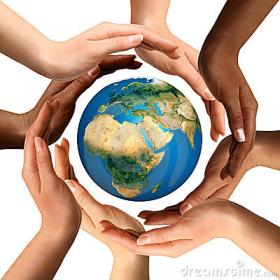
Register for the the annual shoreline cleanup in spring. Get involved in a location near you and learn about the impacts of shore litter on wildlife and ecosystems.
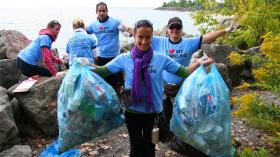
Long-established non-profit environmental activist organization, with a presence in 40 countries across Europe, the Americas, Asia and the Pacific. Actively campaigning against threats to the ocean, such as oil drilling in the Arctic, overfishing, pirate fishing, and whaling, and for national governments to recognize these threats and legislate to mitigate them.
Working towards healthier human and wildlife habitat along the shorelines of Canada, the Living by Water Project is a national partnership initiative with regional coordinators in several locations. Founders Sarah Kipp and Clive Callaway co-authored the book, "On the Living Edge: Your Guide for Waterfront Living." Help protect water quality, prevent soil erosion, and provide habitat in spring, summer, fall and winter.
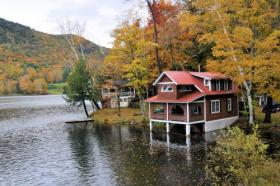
Canada's largest organization devoted to marine conservation, tackling such issues as oil tankers on the coast, marine biodiversity, sustainable fisheries, ocean planning through ecosystem-based management, ocean acidification. The Living Reef was a project to conduct a census of British Columbia's reef sealife by enlisting the help of divers and snorklers. See Ocean Planning for issues on the radar and Maps for Marine Protected Areas.

Search "water" for info and articles on water and water issues around the world. Calculate your water footprint, take the freshwater quiz, and peruse beautiful water-related photography.
Environmental organization focused on wildlife and habitat conservation since 1936. Fights water and air pollution to revive and preserve America's Great Waters. See also the CWF (Canadian Wildlife Federation).
Uses the law, science, and the support of 1.4 million members and online activists to protect drinking water, create marine protected areas, strengthen environmental protection regulation, and enforce water-rights laws. Website provides a wealth of environmental information and online activism tools.
More than 40,000 members and 100 affiliates, many of them naturalist organizations. Mission is to protect nature, its diversity and the processes that sustain it. Publishes colourful Nature Canada magazine - "the national magazine on nature and the environment" - 3 times per year, free to members.
"Your daily guide to helping the planet": daily environmental news produced with Reuters News Agency. Australia-based organization, funded by the public, business councils, businesses and community groups. Provides reports on water, politics and economics, recycling and educational information, and national environmental events.
January 24, 2018The Guardian. Photographer Mario Macilau travels around Mozambique documenting with photos and stories the desperate state of its people in their daily struggle to survive without clean water.
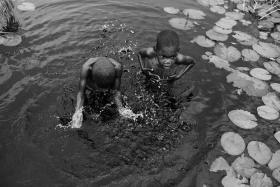
Non-profit purchases important natural areas, habitats, buildings and recreation sites in order to protect and conserve them.
Collective of over 200 groups around the world pledged to defend watersheds. They strive to eliminate the impact of factory farms on waterways, protect and enforce environmental laws, and decrease dependency on fossil fuels. Learn how to become a Waterkeeper or find the one nearest you.
BC-based bimonthly magazine offers environmental news with a "bioregional and global perspective", focusing on issues that will move us towards a sustainable society. Search items on privatization of water, bottled water, ocean acidification, pollution etc.
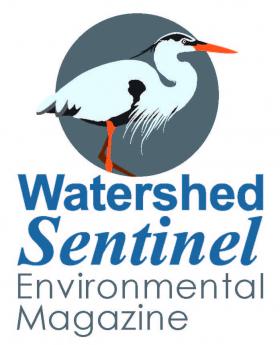
Environmental watchdog group actively fighting to ensure the 110 million acres of America's National Wilderness Preservation System and the National Wild & Scenic Rivers Systems remain in their natural, wild state.
WWF's Global Marine Programme protects marine ecosystem from destructive human activities. WWF Canada and WWF U.S.A. have campaigns against overfishing and bycatch waste
-
Political, legal & trade
The Blue Planet Project (no association with this website or Blue Planet Links Foundation) is an international campaign started by the Council of Canadians, aimed at "protecting the world's fresh water from the growing threats of trade and privatization" and preserving access to water as a fundamental human right.
The CWN includes a variety of organizations representing environmentalists, commercial fishermen, recreational anglers, surfers, boaters, farmers, faith communities, environmental justice advocates, labor unions, urban communities, consumers, recreationalists and others working to affect public policy.
U.S.-wide citizens' organization working for clean, safe and affordable water, prevention of health-threatening pollution, creation of environmentally-safe jobs and businesses, and empowerment of people to make democracy work. Organizes grassroots groups, coalitions and campaigns to protect environment, health, economic well-being and community quality of life.
Offers news and opinion from Canadian and international media reports on Oceans (fisheries, ocean health and aquaculture) and Fresh Water (hydropower, water and hydrocarbons, privatization, scarcity).
"Water is a public trust. No one should have the right to appropriate it or profit from it at someone else's expense." Large citizens watchdog group works to keep Canada's most pressing issues in the spotlight. Blue Planet Project (no association with Blue Planet Links) is the COC-initiated international campaign against privatization of water.
Ecojustice uses the law to protect and restore the environment, issuing reports such as Drinking Water Report Cards and Sewage Report Cards, and generally holding government's feet to the fire. Formerly Sierra Defense Fund Canada.
Founded as the Environmental Defense Fund in 1967, at which time it worked successfully through the court system to bring about the banning of DDT. Less court-focussed today, but still a powerful advocate for solutions to "environmental issues that affect our oceans, our air, our natural resources, the livability of our man-made environment, and the species with whom we share our world." See Oceans.
American federal agency offers a wide variety of information and services from grants to water-related educational resources and Safe Drinking Water regulations.
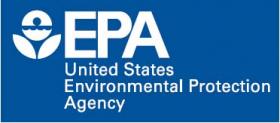
Food and Water Watch "advocates for common sense policies that will result in healthy, safe food and access to safe and affordable drinking water". Current campaigns include those against bottled water (Take Back the Tap), fracking, water privatization, and triclosan (in antibacterial soap).
Long-established non-profit environmental activist organization, with a presence in 40 countries across Europe, the Americas, Asia and the Pacific. Actively campaigning against threats to the ocean, such as oil drilling in the Arctic, overfishing, pirate fishing, and whaling, and for national governments to recognize these threats and legislate to mitigate them.
Water can create international conflict when it is restricted or bring about peace when it is supplied where needed. This agency works with a variety of groups on conflict resolution and diplomacy training.
The IUCN's mission states conserving biodiversity is the key to sustainable development, food security, and combatting climate change. Members from some 160 countries, including over 200 government agencies and 900 NGOs, form this‘Green Web’ of partnerships that has generated environmental conventions, global standards, scientific knowledge and innovative leadership since 1948.
The Keepers of the Water is comprised of First Nations, Metis, and Inuit peoples; environmental groups; concerned citizens; and communities working together for the protection of air, water, and land in the Arctic Drainage Basin.
Canada's largest organization devoted to marine conservation, tackling such issues as oil tankers on the coast, marine biodiversity, sustainable fisheries, ocean planning through ecosystem-based management, ocean acidification. The Living Reef was a project to conduct a census of British Columbia's reef sealife by enlisting the help of divers and snorklers. See Ocean Planning for issues on the radar and Maps for Marine Protected Areas.

Polaris sees itself as a guiding star for citizens' movements for democratic social change, providing strategies and tactics to use against "the corporate power that is the driving force behind governments" concerning public policy. It fights against a threatening for-profit water privatization agenda. Director Tony Clarke is co-author of the book Blue Gold.
University of Victoria policy researchers investigate public policy options related to water sustainability. Publications suggest that an ecosystem-based paradigm is necessary for sustainability of water resources, requiring an integrated approach by all levels of government, business, industry and society.
A website dedicated to educating and enlisting the public in protecting and restoring the quality of waters and wetlands.
A campaign for clean, safe recreational waters, free from sewage effluents, toxic chemicals and nuclear waste. Using a solution-based argument of viable and sustainable alternatives, SAS highlights the inherent flaws in current practices, attitudes and legislation, challenging industry, legislators and politicians to end their 'pump and dump' policies.
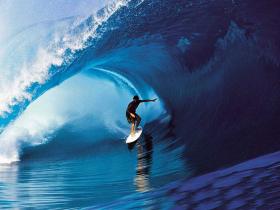
Katoomba is an international working group of experts from forest and energy industries, research institutions, the financial world, and environmental NGOs, all dedicated to facilitating strategic partnerships that can take an ecosystem approach and promote green products and systems that protect watersheds and biodiverse habitats in working forests.
The Pacific Institute, an independent California-based think tank, provides up-to-date water information, data, and links to organizations working on a wide range of global freshwater problems and solutions. Special interest in international water law and water-based conflicts. Institute Director Peter Gleick authors a biennial World Water Report.
A charity dedicated to helping people escape the stranglehold of poverty and disease caused by living without safe water and sanitation. WaterAid works in partnership with local organizations in 35 countries to help poor communities establish sustainable water supplies and latrines. A link to each country reveals its statistics and unique stories. WaterAid also works to influence governments’ water and sanitation policies to serve the interests of vulnerable people.
International water policy think tank dedicated to strengthening the world water movement for improved management of the world's water resources. Established in Marseille, France, in 1996 as a non-profit, non-governmental umbrella organization. Organizes the triennial World Water Forum.
-
Oceans
An organization using design and policy solutions to solve the plastic pollution crisis. Their study indentifying the prevalence of plastic microbeads led to their ban in the United States.
Offers news and opinion from Canadian and international media reports on Oceans (fisheries, ocean health and aquaculture) and Fresh Water (hydropower, water and hydrocarbons, privatization, scarcity).
Cruise ships are dumping an estimated $3.8 billion litres of (often untreated) sewage into the oceans each year, which is deadly to marine life. If you must cruise, take a look at Friends of the Environment's report card to choose a greener cruise line. See articles by The Guardian and Quartz outlining the problem. Cruise Control: A report on how cruise ships affect the marine environment by the Ocean Conservancy is a detailed look at the effects of this big business.
DSF works to find definable solutions to the planet's most pressing environmental problems, and to provide useful information, thought-provoking communications, and plans for a truly sustainable society. Founded by renowned scientist/environmentalist (and television personality), David Suzuki. In Oceans, #jointhepod the help Salish Sea orcas, and understand what oceans do for us in the report Not Just a Pretty View.
Dr. Ken Buesseler presents an overview of the state of radionuclides in the ocean after Fukushima. Discussion includes the impact of cesium on fish and Japanese fisheries and an update on the citizen movement Our Radioactive Ocean.
Comprised of 18 international leadership figures, including former Canadian Prime Minister Paul Martin, the Global Ocean Commission's recommends solutions to key problems contributing to the high seas' degradation: overfishing; large-scale loss of habitat and biodiversity; the lack of effective management and enforcement; deficiencies in high seas government. After 18 months of research, the Commission released its report From Decline to Recovery: A Rescue Package for the Global Ocean with a five year deadline for action.
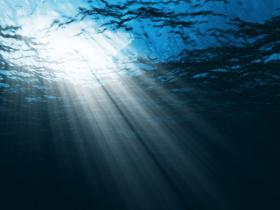
Long-established non-profit environmental activist organization, with a presence in 40 countries across Europe, the Americas, Asia and the Pacific. Actively campaigning against threats to the ocean, such as oil drilling in the Arctic, overfishing, pirate fishing, and whaling, and for national governments to recognize these threats and legislate to mitigate them.
Canada's largest organization devoted to marine conservation, tackling such issues as oil tankers on the coast, marine biodiversity, sustainable fisheries, ocean planning through ecosystem-based management, ocean acidification. The Living Reef was a project to conduct a census of British Columbia's reef sealife by enlisting the help of divers and snorklers. See Ocean Planning for issues on the radar and Maps for Marine Protected Areas.

Ocean-based industries generate $13.5 billion towards BC's annual GDP, but natural capital (storm protection, carbon sequestration, abundant seafood, etc.) is valued at $101 billion in the Great Bear Sea alone. David Suzuki Foundation report emphasizes the importance of a healthy marine environment to BC's economy and encourages invesment in marine planning.
The Global Ocean Commission identified eight proposals to reverse ocean degradation: a UN Sustainable Development Goal for the ocean; governing the high seas; no more overfishing; preventing illegal, unreported and unregulated fishing; keeping plastics out of the ocean; setting binding environmental standards for offshore drilling; Global Ocean Accountability Board; creating a high seas regeneration zone.
Current ocean stories and news, protecting the ocean, pollution. Pristine Seas is a project to help protect, preserve, and in some cases restore the last wild places in the ocean; oceanologist Enric Sala tells why we need it in a TED talk.
Ocean exploration and education. Jean-Michel Cousteau's aims are to "explore the connection between our actions and the health of the ocean... and to inspire people to act responsibly for its protection."
"The largest international organization focused solely on ocean conservation", Oceana researches and reports on regional and global threats to the ocean and drives for improved public policies to counter the threats of overfishing, pollution, bottom trawling and driftnet fishing, offshore drilling and more.
With 2.76 million square kilometres of ocean and the longest coastline in the world, Canada is a major fishing nation. Oceana Canada is working to restore and rebuild Canada's fisheries back to their original richness and abundance using science-based fishery management. Current campaigns focus on three areas: protecting marine habitat, rebuilding ocean abundance, and stopping seafood fraud.
Maui, Hawaii-based group works to protect the marine environment, particularly for whales, through public education, research and anti-pollution campaigns.
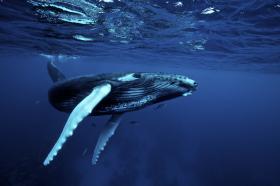
Seattle, Washington group aims to protect and restore the health of Puget Sound and Northwest waters through education and action. See also Puget Sound Partnership - government and community partners with the same aim.
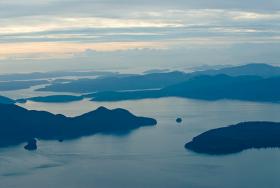
RBC provides financial support to North American not-for-profit organizations that protect watersheds and provide or ensure access to clean drinking water.
EcoWatch. A solar and wind-powered floating vaccuum, SeaVax is the latest ocean clean-up device in a proto-type stage, seeking funding to make a dent in the ocean's plastic problem.
A 2015 report by Ocean Conservancy and McKinsey Center for Business and Environment warns that plastic in the oceans could double to 250 million metric tons by 2025 - one ton for every three tons of fish. China, Indonesia, the Phillipines, Thailand and Vietnam are responsible for half of land-based sources of plastic. The solutions-based report recommends a $5 billion investment per year to reduce plastic-waste leakage by 65% in those countries and 45% globally.
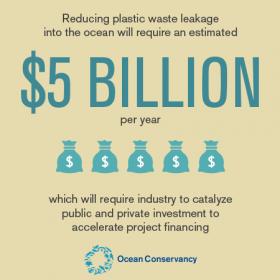
SEA is a grass-roots, project-based organization aggressively committed to the cultural and environmental integrity of the sport of surfing. "We are as much devoted to protecting the natural wonders of the coastal environment as we are to fostering and protecting beach access."
American web site of non-profit environmental organization dedicated to protecting oceans, waves and beaches. 60 U.S. chapters, plus associates in Japan, Brazil, Europe and Australia.
Eight-minute preview and fundraising campaign for the full-length documentary The Living Salish Sea, a spotlight on the beauty and diversity of Canada's southwest coast and preventing Kinder Morgan from twinning its pipelines and ushering in 400 oil tankers a year.
Investing in land and water conservation projects around the world using innovative finance, science and design. Their Water page focuses on river protection and water security, and Oceans gets to the root of this ecosystem's benefits to ensure conservation is a priority. Our World Campaign rallies philanthropists, government and companies to use their financial strength to dramatically advance conservation.
A young person's idea to use ocean currents to sweep plastic waste into giant collectors is now coming to fruition. They've installed their first prototype and completed aerial mapping of major garbage patches.
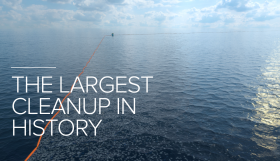
A global organization with the vision of a world of healthy, protected oceans with wild and flourishing ecosystems, free of pollution, and filled with diverse and abundant marine wildlife. Nearly a million members, many of whom participate each September in the group's International Coastal Clean-up Day.
Grist. Volcanos may be responsible for historical rises in sea level, the ocean was a source of CO2 during the last ice age, and scientist can now test the age and determine the source of dissolved carbon using microbes.
University of California updates their Oceans/Marine subject page regularly with the latest articles on the ocean and marine life.
Ocean Wise is a world conservation leader, internationally recognized for its marine mammal rescue program and ocean research. Its Vancouver Aquarium showcases marine life; its community education and research arms are dedicated to increasing global understanding and appreciation of our oceans. Check out Weekly Water Reports to look at the biggest threats to healthy water: overuse, diversion of natural flows, lack of access, pollution and climate change. Or for a lighter read - fun facts about Water Drops: did you know that big water drops are shaped like hamburger buns?
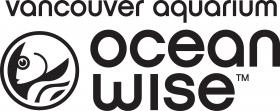
Dr. Peter Ross is the only marine mammal toxicologist in Canada and has been studying pollution in the Pacific Ocean and its effects on marine life for the last 3 decades. He is the Director of an ambitious new program at the Vancouver Aquarium designed to measure and assess the impact of ocean pollution.
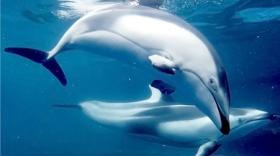
Take a selfie for the sea, enter the photo contest, and create or attend an event to show your support for World Oceans Day!
World Wildlife Federation Canada offers tips to help diminish an individual's harm to the ocean as well as tackles larger campaigns such as protecting the quiet of the Great Bear Sea and promoting the recovery of cod in the Grand Banks, Atlantic Ocean.
-
Rivers & dams
Environmental activists push to protect endangered U.S. rivers and their natural fish populations.
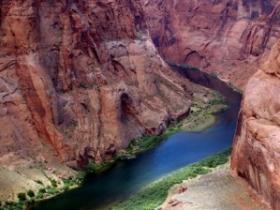
Coinciding with World Rivers Day, this annual celebration of BC waterways gives British Columbians an opportunity to appreciate their local rivers with likeminded individuals; find a riverside event near you!
Field of study at British Columbia Institute of Technology focused on the protection and recovery of rivers, streams and wetlands.
The objective is to recover America's Pacific Northwest wild salmon stocks and the healthy rivers and habitats upon which they depend, including the removal of 4 Lower Snake River dams.
Offers news and opinion from Canadian and international media reports on Oceans (fisheries, ocean health and aquaculture) and Fresh Water (hydropower, water and hydrocarbons, privatization, scarcity).
Fights to protect rivers and watersheds, including campaigns to halt new dams, decommissioning of existing dams and canals, and to search out alternative, equitable and sustainable means of meeting needs for water, energy and flood management. European Rivers Network is a sister group.
Current news about rivers, dams, drought, climate change and other freshwater-related topics. Encouragement to Change the Course of freshwater’s future.
By Mark Angelo, Special to the Vancouver Sun. Climate change isn't just taking its toll on the coast, it is also disrupting the normal patterns of rivers and streams. Angelo argues the need for a long-term plan to address foreseen consequences of global warming, including a more conservative approach to fisheries management, modernized water and river-related laws, and water management strategies in times of drought.
Dedicated to the protection of British Columbia's land and waters to help preserve the active lifestyle of British Columbians. Provincial organizer of BC Rivers Day (last Sunday in September), ORC provides promotional assistance and advice for organizations that want to celebrate with rivers-related activities.
RBC provides financial support to North American not-for-profit organizations that protect watersheds and provide or ensure access to clean drinking water.
High profile (Robert Kennedy, Jr.) river advocacy group that has been responsible for significant clean-up of the Hudson River in New York.
Investing in land and water conservation projects around the world using innovative finance, science and design. Their Water page focuses on river protection and water security, and Oceans gets to the root of this ecosystem's benefits to ensure conservation is a priority. Our World Campaign rallies philanthropists, government and companies to use their financial strength to dramatically advance conservation.
-
Lakes & wetlands
Conservation, restoration and management of North American wetlands for the benefit of waterfowl and about 900 other species. Members, mostly outdoors people who hunt, have restored more than 10 million acres of marshland.
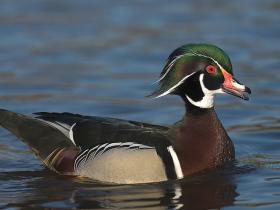
Conservation, restoration and management of Canadian wetlands for the benefit of waterfowl and about 900 other species. Find programs, projects, and current wetland habitat conditions in your province.
A Global Nature Fund group: promotes voluntary international collaboration to enhance, restore and protect lakes, freshwater and catchment areas, ecologially, economically and socially, through sharing of information, news, technology, sponsorship of conferences. Major partners include lake organizations in Germany, Spain, the U.S., Greece and South Africa.
Empowers Canadians to work together and safeguard their waters through science, technology, storytelling, law and education. Oversees four programs: Great Lakes Challenges, Lake Ontario Waterkeeper, Swim Guide and Watermark Project.
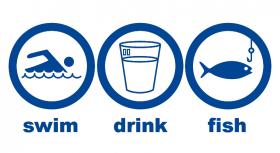
-
North America
Environmental activists push to protect endangered U.S. rivers and their natural fish populations.

Coinciding with World Rivers Day, this annual celebration of BC waterways gives British Columbians an opportunity to appreciate their local rivers with likeminded individuals; find a riverside event near you!
Field of study at British Columbia Institute of Technology focused on the protection and recovery of rivers, streams and wetlands.
Beaches and marines that meet strict criteria for water quality, environmental management and education are certified with the eco-label "Blue Flag" - coordinated by Environmental Defence. Look for a Blue Flag beach or marina near you, or apply for certification.
The CWN includes a variety of organizations representing environmentalists, commercial fishermen, recreational anglers, surfers, boaters, farmers, faith communities, environmental justice advocates, labor unions, urban communities, consumers, recreationalists and others working to affect public policy.
CWRA is a national organization of individuals and organizations interested in the management of Canada's water resources. Membership is composed of private and public sector water resource professionals, including managers, administrators, scientists, academics, students and users.
CWF aims to represent and speak on behalf of wildlife by creating awareness and inspiring people to take action. Find out how to love your lake or follow the map of Canada's great whales!
U.S.-wide citizens' organization working for clean, safe and affordable water, prevention of health-threatening pollution, creation of environmentally-safe jobs and businesses, and empowerment of people to make democracy work. Organizes grassroots groups, coalitions and campaigns to protect environment, health, economic well-being and community quality of life.
Based in Washington, DC, CWF is a national nonprofit research and educational organization, with locally staffed environmental and health protection programs serving communities in nearly 20 states. CWF’s mission is to develop strong grassroots environmental leadership and to bring together diverse constituencies to work cooperatively for changes that improve their lives, focused on health, consumer, environmental and community problems.
A coalition of four leading environmental groups of the Pacific coast conservation community,: David Suzuki Foundation, Georgia Strait Alliance, Living Oceans Society, and T. Buck Suzuki Fondation. CARR aims to protect against destructive fish farming practices - specifically, open-net aquaculture - and to encourage the fish farming industry to adopt new technology, change to environment-friendly practices and to respect local communities.
The objective is to recover America's Pacific Northwest wild salmon stocks and the healthy rivers and habitats upon which they depend, including the removal of 4 Lower Snake River dams.
Offers news and opinion from Canadian and international media reports on Oceans (fisheries, ocean health and aquaculture) and Fresh Water (hydropower, water and hydrocarbons, privatization, scarcity).
"Water is a public trust. No one should have the right to appropriate it or profit from it at someone else's expense." Large citizens watchdog group works to keep Canada's most pressing issues in the spotlight. Blue Planet Project (no association with Blue Planet Links) is the COC-initiated international campaign against privatization of water.
Conservation, restoration and management of North American wetlands for the benefit of waterfowl and about 900 other species. Members, mostly outdoors people who hunt, have restored more than 10 million acres of marshland.

Conservation, restoration and management of Canadian wetlands for the benefit of waterfowl and about 900 other species. Find programs, projects, and current wetland habitat conditions in your province.
Umbrella organization for leading American environmental and conservation groups. Organizes or assists with workplace fundraising campaigns: donations or pledges can go to Earth Share (to be distributed among its member groups) or designated to one or more specific environmental organizations.

Ecojustice uses the law to protect and restore the environment, issuing reports such as Drinking Water Report Cards and Sewage Report Cards, and generally holding government's feet to the fire. Formerly Sierra Defense Fund Canada.
Founded as the Environmental Defense Fund in 1967, at which time it worked successfully through the court system to bring about the banning of DDT. Less court-focussed today, but still a powerful advocate for solutions to "environmental issues that affect our oceans, our air, our natural resources, the livability of our man-made environment, and the species with whom we share our world." See Oceans.
American federal agency offers a wide variety of information and services from grants to water-related educational resources and Safe Drinking Water regulations.

Food and Water Watch "advocates for common sense policies that will result in healthy, safe food and access to safe and affordable drinking water". Current campaigns include those against bottled water (Take Back the Tap), fracking, water privatization, and triclosan (in antibacterial soap).
A marine conservation organization and an environmental voice for coastal communities in BC. It focuses on protecting marine life and preventing pollution from entering our waterways by using science, advocacy, collaboration, outreach, education and stewardship to find solutions to marine threats.
Register for the the annual shoreline cleanup in spring. Get involved in a location near you and learn about the impacts of shore litter on wildlife and ecosystems.

The Keepers of the Water is comprised of First Nations, Metis, and Inuit peoples; environmental groups; concerned citizens; and communities working together for the protection of air, water, and land in the Arctic Drainage Basin.
Canada's largest organization devoted to marine conservation, tackling such issues as oil tankers on the coast, marine biodiversity, sustainable fisheries, ocean planning through ecosystem-based management, ocean acidification. The Living Reef was a project to conduct a census of British Columbia's reef sealife by enlisting the help of divers and snorklers. See Ocean Planning for issues on the radar and Maps for Marine Protected Areas.

Organization for anyone associated with the groundwater industry. Their purpose is to provide guidance to members, government representatives, and the public for sound scientific, economic, and beneficial development, protection, and management of the world's groundwater resources.
Environmental organization focused on wildlife and habitat conservation since 1936. Fights water and air pollution to revive and preserve America's Great Waters. See also the CWF (Canadian Wildlife Federation).
Uses the law, science, and the support of 1.4 million members and online activists to protect drinking water, create marine protected areas, strengthen environmental protection regulation, and enforce water-rights laws. Website provides a wealth of environmental information and online activism tools.
More than 40,000 members and 100 affiliates, many of them naturalist organizations. Mission is to protect nature, its diversity and the processes that sustain it. Publishes colourful Nature Canada magazine - "the national magazine on nature and the environment" - 3 times per year, free to members.
This Vancouver Aquarium program provides a list of environmentally responsible seafoods and a handy restaurant-locator featuring ocean-friendly choices.
With 2.76 million square kilometres of ocean and the longest coastline in the world, Canada is a major fishing nation. Oceana Canada is working to restore and rebuild Canada's fisheries back to their original richness and abundance using science-based fishery management. Current campaigns focus on three areas: protecting marine habitat, rebuilding ocean abundance, and stopping seafood fraud.
Dedicated to the protection of British Columbia's land and waters to help preserve the active lifestyle of British Columbians. Provincial organizer of BC Rivers Day (last Sunday in September), ORC provides promotional assistance and advice for organizations that want to celebrate with rivers-related activities.
Seattle, Washington group aims to protect and restore the health of Puget Sound and Northwest waters through education and action. See also Puget Sound Partnership - government and community partners with the same aim.

Non-profit British Columbia research and public education group promoting an ecosystem approach to fisheries and watershed management. Fisheries Management and Canada's Wild Salmon Policy features the Raincoast publication Ghost Runs, a paper on the effects of various policies and industries on salmon runs.
Biologist Alexandra Morton studied the orca and dolphins off British Columbia's coast, and gradually became alarmed at the decline in local whale populations, eventually becoming a whistle-blower to alert the public and governments to the threats to indigenous whale and fish species. Argues fervently against unregulated, open netcage aquaculture. See also her blog.
RBC provides financial support to North American not-for-profit organizations that protect watersheds and provide or ensure access to clean drinking water.
Foundation working for a sustainable pulp and paper industry by promoting environmentally safe products and production (emphasizing non-chlorine processing, and higher, enforced discharge pollution standards).
High profile (Robert Kennedy, Jr.) river advocacy group that has been responsible for significant clean-up of the Hudson River in New York.
A website dedicated to educating and enlisting the public in protecting and restoring the quality of waters and wetlands.
SEA is a grass-roots, project-based organization aggressively committed to the cultural and environmental integrity of the sport of surfing. "We are as much devoted to protecting the natural wonders of the coastal environment as we are to fostering and protecting beach access."
American web site of non-profit environmental organization dedicated to protecting oceans, waves and beaches. 60 U.S. chapters, plus associates in Japan, Brazil, Europe and Australia.
Empowers Canadians to work together and safeguard their waters through science, technology, storytelling, law and education. Oversees four programs: Great Lakes Challenges, Lake Ontario Waterkeeper, Swim Guide and Watermark Project.

Protecting the marine environment for commercial fishing and wild fish, the organization advocates contained fish farms, improved drainage and water treatment systems, and fights industrial water pollution.
Non-profit purchases important natural areas, habitats, buildings and recreation sites in order to protect and conserve them.
Eight-minute preview and fundraising campaign for the full-length documentary The Living Salish Sea, a spotlight on the beauty and diversity of Canada's southwest coast and preventing Kinder Morgan from twinning its pipelines and ushering in 400 oil tankers a year.
Investing in land and water conservation projects around the world using innovative finance, science and design. Their Water page focuses on river protection and water security, and Oceans gets to the root of this ecosystem's benefits to ensure conservation is a priority. Our World Campaign rallies philanthropists, government and companies to use their financial strength to dramatically advance conservation.
Ocean Wise is a world conservation leader, internationally recognized for its marine mammal rescue program and ocean research. Its Vancouver Aquarium showcases marine life; its community education and research arms are dedicated to increasing global understanding and appreciation of our oceans. Check out Weekly Water Reports to look at the biggest threats to healthy water: overuse, diversion of natural flows, lack of access, pollution and climate change. Or for a lighter read - fun facts about Water Drops: did you know that big water drops are shaped like hamburger buns?

Along with groups such as the U.S. Center for Disease Control and Prevention, the council is part of an international partnership working to bring home water treatment products to communities not served by municipal supplies or safe wells - treatments accompanied by intensive social marketing to ensure proper and continued use. Sponsored by the Chlorine Chemistry Council, plenty of information on this website is about disinfecting procedures, usually favouring chlorine bleach (sodium chlorite), long considered the basic "water cleaner".
BC-based bimonthly magazine offers environmental news with a "bioregional and global perspective", focusing on issues that will move us towards a sustainable society. Search items on privatization of water, bottled water, ocean acidification, pollution etc.

"Watching out for BC's wild salmon", Watershed Watch spearheads issues such as open-net fish farms, the impact of hydropower projects, unsustainable harvesting, pollution, and many others that may have a detrimental impact on wild salmon.

Environmental watchdog group actively fighting to ensure the 110 million acres of America's National Wilderness Preservation System and the National Wild & Scenic Rivers Systems remain in their natural, wild state.
World Wildlife Federation Canada offers tips to help diminish an individual's harm to the ocean as well as tackles larger campaigns such as protecting the quiet of the Great Bear Sea and promoting the recovery of cod in the Grand Banks, Atlantic Ocean.
-
Outside North America
"Your daily guide to helping the planet": daily environmental news produced with Reuters News Agency. Australia-based organization, funded by the public, business councils, businesses and community groups. Provides reports on water, politics and economics, recycling and educational information, and national environmental events.
A campaign for clean, safe recreational waters, free from sewage effluents, toxic chemicals and nuclear waste. Using a solution-based argument of viable and sustainable alternatives, SAS highlights the inherent flaws in current practices, attitudes and legislation, challenging industry, legislators and politicians to end their 'pump and dump' policies.

-
Global
The Blue Planet Project (no association with this website or Blue Planet Links Foundation) is an international campaign started by the Council of Canadians, aimed at "protecting the world's fresh water from the growing threats of trade and privatization" and preserving access to water as a fundamental human right.
Cruise ships are dumping an estimated $3.8 billion litres of (often untreated) sewage into the oceans each year, which is deadly to marine life. If you must cruise, take a look at Friends of the Environment's report card to choose a greener cruise line. See articles by The Guardian and Quartz outlining the problem. Cruise Control: A report on how cruise ships affect the marine environment by the Ocean Conservancy is a detailed look at the effects of this big business.
DSF works to find definable solutions to the planet's most pressing environmental problems, and to provide useful information, thought-provoking communications, and plans for a truly sustainable society. Founded by renowned scientist/environmentalist (and television personality), David Suzuki. In Oceans, #jointhepod the help Salish Sea orcas, and understand what oceans do for us in the report Not Just a Pretty View.
Comprised of 18 international leadership figures, including former Canadian Prime Minister Paul Martin, the Global Ocean Commission's recommends solutions to key problems contributing to the high seas' degradation: overfishing; large-scale loss of habitat and biodiversity; the lack of effective management and enforcement; deficiencies in high seas government. After 18 months of research, the Commission released its report From Decline to Recovery: A Rescue Package for the Global Ocean with a five year deadline for action.

Long-established non-profit environmental activist organization, with a presence in 40 countries across Europe, the Americas, Asia and the Pacific. Actively campaigning against threats to the ocean, such as oil drilling in the Arctic, overfishing, pirate fishing, and whaling, and for national governments to recognize these threats and legislate to mitigate them.
Water can create international conflict when it is restricted or bring about peace when it is supplied where needed. This agency works with a variety of groups on conflict resolution and diplomacy training.
Fights to protect rivers and watersheds, including campaigns to halt new dams, decommissioning of existing dams and canals, and to search out alternative, equitable and sustainable means of meeting needs for water, energy and flood management. European Rivers Network is a sister group.
The IUCN's mission states conserving biodiversity is the key to sustainable development, food security, and combatting climate change. Members from some 160 countries, including over 200 government agencies and 900 NGOs, form this‘Green Web’ of partnerships that has generated environmental conventions, global standards, scientific knowledge and innovative leadership since 1948.
IWA connects water professionals around the globe - integrating the leading edge of professional thought on research and practice, regulators and the regulated, across national boundaries and across the drinking water, wastewater and stormwater disciplines.
A Global Nature Fund group: promotes voluntary international collaboration to enhance, restore and protect lakes, freshwater and catchment areas, ecologially, economically and socially, through sharing of information, news, technology, sponsorship of conferences. Major partners include lake organizations in Germany, Spain, the U.S., Greece and South Africa.
Mangrove forests, which grow in tropical intertidal areas and estuary mouths, constitute a critical habitat for a diverse marine ecology, but are rapidly disappearing and degrading as a result of development, charcoal and timber industries, and a burgeoning, unregulated shrimp/prawn farming industry. MAP's 400 NGOs and 250 scientists from 60 nations are engaged in the restoration and protection of mangrove forests, in education, and in working towards a sustainable aquaculture through regulation and eco-friendly practices.

The Global Ocean Commission identified eight proposals to reverse ocean degradation: a UN Sustainable Development Goal for the ocean; governing the high seas; no more overfishing; preventing illegal, unreported and unregulated fishing; keeping plastics out of the ocean; setting binding environmental standards for offshore drilling; Global Ocean Accountability Board; creating a high seas regeneration zone.
Search "water" for info and articles on water and water issues around the world. Calculate your water footprint, take the freshwater quiz, and peruse beautiful water-related photography.
Ocean exploration and education. Jean-Michel Cousteau's aims are to "explore the connection between our actions and the health of the ocean... and to inspire people to act responsibly for its protection."
"The largest international organization focused solely on ocean conservation", Oceana researches and reports on regional and global threats to the ocean and drives for improved public policies to counter the threats of overfishing, pollution, bottom trawling and driftnet fishing, offshore drilling and more.
Maui, Hawaii-based group works to protect the marine environment, particularly for whales, through public education, research and anti-pollution campaigns.

Polaris sees itself as a guiding star for citizens' movements for democratic social change, providing strategies and tactics to use against "the corporate power that is the driving force behind governments" concerning public policy. It fights against a threatening for-profit water privatization agenda. Director Tony Clarke is co-author of the book Blue Gold.
January 24, 2018The Guardian. Photographer Mario Macilau travels around Mozambique documenting with photos and stories the desperate state of its people in their daily struggle to survive without clean water.

Non-profit independent social marketing organization dedicated to conserving healthy seas and sustainable sealife. The Asia Pacific Program empowers communities in Fiji and Papua New Guinea to conserve ocean resources, and GoodCatch guides chefs and restaurateurs to source sustainable seafood.
A 2015 report by Ocean Conservancy and McKinsey Center for Business and Environment warns that plastic in the oceans could double to 250 million metric tons by 2025 - one ton for every three tons of fish. China, Indonesia, the Phillipines, Thailand and Vietnam are responsible for half of land-based sources of plastic. The solutions-based report recommends a $5 billion investment per year to reduce plastic-waste leakage by 65% in those countries and 45% globally.

American web site of non-profit environmental organization dedicated to protecting oceans, waves and beaches. 60 U.S. chapters, plus associates in Japan, Brazil, Europe and Australia.
Katoomba is an international working group of experts from forest and energy industries, research institutions, the financial world, and environmental NGOs, all dedicated to facilitating strategic partnerships that can take an ecosystem approach and promote green products and systems that protect watersheds and biodiverse habitats in working forests.
A global organization with the vision of a world of healthy, protected oceans with wild and flourishing ecosystems, free of pollution, and filled with diverse and abundant marine wildlife. Nearly a million members, many of whom participate each September in the group's International Coastal Clean-up Day.
The Pacific Institute, an independent California-based think tank, provides up-to-date water information, data, and links to organizations working on a wide range of global freshwater problems and solutions. Special interest in international water law and water-based conflicts. Institute Director Peter Gleick authors a biennial World Water Report.
A non-profit organization of water quality professionals dedicated to the preservation and enhancement of the global water environment. Its objectives are to foster innovation, enhance the knowledge of water quality professionals, and generate awareness of water's value.
Huffington Post. Contrasting images of average families around the world in their home setting, surrounded by the amount of water they use per day.
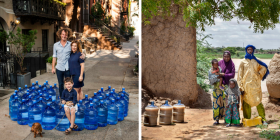
A charity dedicated to helping people escape the stranglehold of poverty and disease caused by living without safe water and sanitation. WaterAid works in partnership with local organizations in 35 countries to help poor communities establish sustainable water supplies and latrines. A link to each country reveals its statistics and unique stories. WaterAid also works to influence governments’ water and sanitation policies to serve the interests of vulnerable people.
The aim of this Association is to increase the amount of large scale water reclamation, treatment, and recycling in the world, including through desalination.
Collective of over 200 groups around the world pledged to defend watersheds. They strive to eliminate the impact of factory farms on waterways, protect and enforce environmental laws, and decrease dependency on fossil fuels. Learn how to become a Waterkeeper or find the one nearest you.
Uruguay-based WRM works to secure the lands and livelihoods of forest peoples and supports their efforts to defend rain forests from such threats as commercial logging and shrimp farming. Shrimp Farms has articles which provide background on the effects of aquaculture on tropical coastal mangrove ecosystems.
Founded in 1980 by Mark Angelo. On the fourth Sunday of September every year, millions of people around the globe participate in events ranging from educational outings and community riverside celebrations to stream clean-ups and river restoration activities. British Columbia activities are spearheaded by BCIT's Rivers Institute.
Check out this news release for 2018 updates!
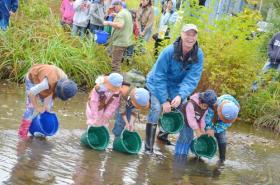
International water policy think tank dedicated to strengthening the world water movement for improved management of the world's water resources. Established in Marseille, France, in 1996 as a non-profit, non-governmental umbrella organization. Organizes the triennial World Water Forum.
WWF's Global Marine Programme protects marine ecosystem from destructive human activities. WWF Canada and WWF U.S.A. have campaigns against overfishing and bycatch waste


